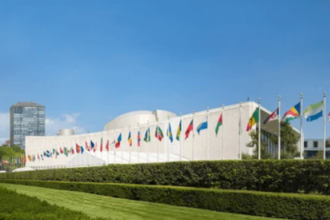The TalibanŌĆÖs egregious violations of women’s rights in Afghanistan, especially banning women from education and even from speaking in public, are beyond the pale. Imposing economic sanctions alone, however, has not changed in any significant way the TalibanŌĆÖs treatment of women. By demonstrating that they understand the TalibanŌĆÖs cultural heritage and religious beliefs, Western powers, with the support of several Arab states, will be in a better position to persuade the Taliban that respecting womenŌĆÖs rights is consistent with their beliefs and would be greatly beneficial to their country.
The violations of womenŌĆÖs human rights by the Taliban in Afghanistan are egregious. Imposing economic sanctions alone will not suffice. A change in strategy and better understanding of the TalibanŌĆÖs mindset is needed to compel them to respect womenŌĆÖs rights.
Although the Taliban were exposed to democracy, freedom, and equality for both men and women for nearly 20 years during the American presence, they reversed these reforms once they reassumed power following the American withdrawal in August 2021, even though the Afghans embraced such freedoms wholeheartedly. From the Taliban’s perspective, these reforms were contrary to their beliefs and way of life.
The TalibanŌĆÖs Egregious WomenŌĆÖs Rights Violations
In 2021, the Taliban banned all education for girls beyond the sixth grade, which has deprived a total of 2.2 million girls and women of their right to education. UNICEF Executive Director Catherine Russell stated last month that the ban continues to harm the future of millions of Afghan girls, and that over four million girls will have been deprived of an education beyond the primary level if the ban persists for another five years. Accordingly, she said, ŌĆ£The consequences for these girls – and for Afghanistan – are catastrophic.ŌĆØ
Since 2021, Afghan women have faced unimaginable oppression. Beyond education bans, the Taliban forced women to cover themselves completely, with criminal penalties for those who refuse to comply. In December 2024, they announced their plan to shut down all NGOs employing women over so-called dress code violations.
Their voices are literally silenced through an August 2024 law that bans women from speaking outside the home. Their rights are stripped away, and their resistance met with brutality. In the shadows of war and conflict, women and girls endure unimaginable suffering, facing heightened levels of gender-based violence, including arbitrary killings, torture, and forced marriage and sexual violence, leaving deep physical and emotional scars.
The Taliban are not oblivious to these findings, as some officials have publicly argued against some bans, but they nevertheless continue to violate womenŌĆÖs rights under the pretext of their bans being consistent with their religious and traditional role in Afghan society. The Taliban are predominantly from the Pashtun tribes, which are indigenous to the region and have a strong tribal structure and cultural traditions, which influenced the TalibanŌĆÖs socio-political orientation.
The Historic Perspective
To better understand the Taliban’s mindset, which reflects their resilience and extremism against foreign domination, it is important to reflect briefly on AfghanistanŌĆÖs history. The region now known as Afghanistan was a target for invaders as early as the sixth century BCE, facing scores of foreign invaders up through the US-led invasion in 2001, yet has shown great resilience against foreign domination, as invaders repeatedly faced fierce resistance and were ultimately forced to withdraw. Across centuries, Afghanistan has consistently defied foreign powers, earning its reputation as the ŌĆ£graveyard of empires.ŌĆØ The TalibanŌĆÖs emergence as a movement was, in large part, a response to the chaos and power vacuum left by the Soviet withdrawal in 1990. They rose to power in 1996 and were ousted by the US-led invasion in 2001.
Afghan religious extremism stems from several factors. The U.S. and its allies funded and armed mujahideen fighters during the Soviet occupation of Afghanistan, fostering radical ideologies. Saudi-funded schools in Pakistan taught extreme Deobandi and Wahhabi ideologies to Afghan refugees, who returned to Afghanistan to fight in the Afghan Civil War.┬Ā Following the departure of the Soviets, the Taliban imposed puritanical Islam rooted in Deobandi ideology and ethnic and political manipulation. Extremism was used to consolidate power, suppress minorities, and resist foreign influence.
Cutting aid alone is not the answer
It is necessary for global powers to hold the Taliban accountable for gender persecution and take punitive actions, including cutting off financial aid; however, thus far, imposing economic sanctions alone has not yielded the desired results. The TalibanŌĆÖs harsh treatment of women remains unabated, and to effect a real change, the West must change its strategy. While the threat of more sanctions should continue to hover over the Taliban’s heads, to effect the necessary changes to improve womenŌĆÖs rights, the West should take systematic measures that align with the groupŌĆÖs cultural and religious teachings.
Working with influential Muslim-majority countries, including Indonesia, Qatar, and Saudi Arabia, which is the leader of Sunni Islam, is key in order to challenge the TalibanŌĆÖs interpretation of Sharia law while highlighting Quranic principles of equality and historical examples of female scholarship in Islam.
In Afghanistan, the restrictions on women’s rights, including education and dress codes, are based on interpretations of Islamic law and cultural practices rather than direct Quranic edicts.┬Ā To demonstrate to the Taliban leaders that respecting womenŌĆÖs human rights complements rather than compromises their cultural and religious beliefs, the WestŌĆÖs Arab and Muslim partners should cite Quranic verses to make the case.
The first revelation to Prophet Muhammad begins with the command to ŌĆ£read,ŌĆØ which is seen as a universal call to acquire knowledge. Surah Al-Tawbah (9:71) emphasizes the equal responsibility of men and women in seeking knowledge and upholding moral values. Surah Al-Hadid (57:25) promotes education as a means to establish justice and equity in society.
Moreover, the Quran does not explicitly state that women should be segregated from men, nor that they must wear a hijab. Surah An-Nur (24:30-31) instructs both men and women to be modest and guard their private parts, certainly not their heads or faces, but the Taliban interprets this to support the wearing of a burqa that covers Afghan women from head to toe.┬Ā In that regard, the West should provide aid to Afghan clerics who advocate for girlsŌĆÖ education and womenŌĆÖs rights within Islamic teachings, and invoke womenŌĆÖs literacy in Afghanistan before the rise of the Taliban to encourage those clerics.
Additionally, targeted economic support for infrastructure projects and agricultural investments should be offered in exchange for reopening girlsŌĆÖ secondary schools or permitting womenŌĆÖs employment in the health and education sectors while emphasizing the economic cost of excluding women. In conjunction with that, preferential trade terms for Afghan products produced by women should be provided while highlighting how educated women improve public health outcomes for all.
The West should also support community-based schools and computer and science training for women and girls, which reliable local NGOs should administer, and provide safe channels for women activists to air their grievances. Culturally, the West should invest in programs showcasing women artists, poets, and historians as custodians of AfghanistanŌĆÖs cultural heritage. In that regard, the media should be used to disseminate success stories of Muslim-majority countries, like Bangladesh and the UAE, where womenŌĆÖs education and employment coexist with cultural and religious values.
By combining religious dialogue, economic pragmatism, and grassroots movements to empower women, the West should pursue incremental progress, which will be more sustainable than seeking instantaneous change.
Recalling the way the Afghan people were treated by foreign powers over the centuries, the Taliban have developed an instinctive adversarial reaction to anything proposed by any foreign power. This certainly does not justify their treatment of women, but they need to be persuaded, however, that the proposed changes can only benefit their country’s socio-economic conditions while respecting womenŌĆÖs rights, without compromising their cultural and religious beliefs.









